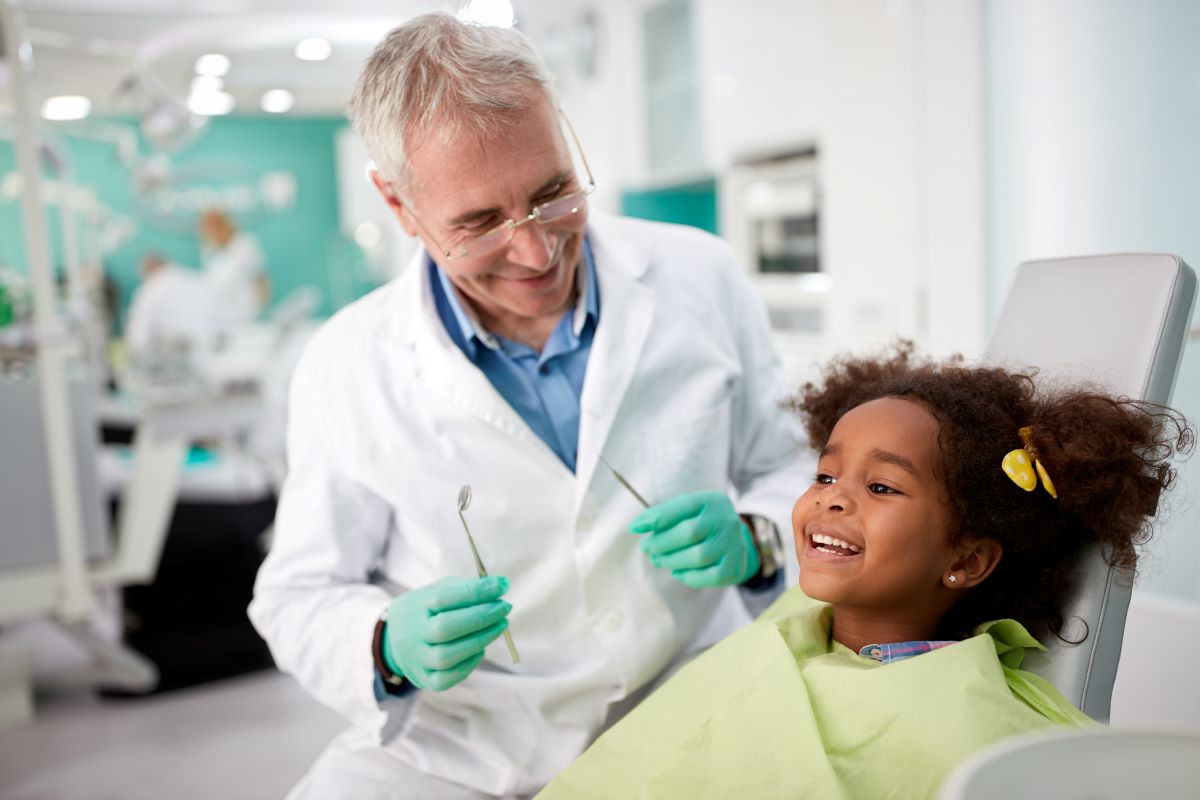Pediatric Dental Emergencies: What Parents Required to Know for Quick and Effective Therapy
In the realm of pediatric health care, dental emergencies can arise suddenly, leaving moms and dads not sure of how to take care of the situation properly. Understanding the indications, sorts of injuries, and instant actions to take can make a substantial difference in the outcome for a kid's oral health. With a fast and appropriate reaction, moms and dads can minimize potential long-lasting effects and guarantee their youngster gets the essential treatment quickly. By being prepared and notified, moms and dads can play an important function in guarding their child's dental well-being.
Signs of Pediatric Dental Emergencies
When evaluating pediatric dental emergencies, it is important for parents to be alert for certain indications suggesting prospective severe problems. One of the primary signs of an oral emergency situation in youngsters is persistent tooth pain that is not reduced by over the counter pain medicines. This can suggest an underlying infection or damage that calls for prompt interest from a dental practitioner. Swelling in the gum tissues, face, or jaw area is one more red flag that needs to not be neglected, as it might be a sign of an abscess or various other serious oral problem.

Usual Kinds of Oral Injuries
Common sorts of dental injuries in youngsters commonly result from crashes or sports-related activities that can lead to numerous forms of injury to the mouth and teeth. One common oral injury is a fractured tooth, which can range from a minor chip to a much more severe break including the inner layers of the tooth. One more constant injury is a knocked-out tooth, where prompt action is critical to boost the chances of saving the tooth. Youngsters may additionally experience dental injuries like tooth breach, where the tooth is pushed right into the jawbone, or avulsion, which is the complete displacement of a tooth from its outlet. Additionally, oral injuries can include luxation, where the tooth is removed yet not completely knocked senseless, or soft cells injuries to the gums, lips, or tongue. It is crucial for parents to be knowledgeable about these typical kinds of oral injuries to page offer punctual and suitable treatment in instance of emergencies.
Immediate First Aid Procedures
Upon running into a pediatric dental emergency, swift and appropriate emergency treatment measures are essential to ease discomfort and protect against more difficulties. For a knocked-out tooth, instruct the child to gently rinse the tooth with water, trying not to touch the root, and area it back in the outlet ideally. If re-implantation is not feasible, store the tooth in a container of milk or the child's saliva until getting to the dental professional. In situations of a damaged or broke tooth, wash the mouth with warm water and apply Read Full Report a cold compress to reduce swelling. A bitten lip or tongue should be cleansed delicately with water, and a cool compress can aid relieve discomfort and minimize swelling. For items stuck between teeth, avoid using sharp devices and rather motivate the kid to gently floss to displace the item. In all circumstances, it is essential to speak to a pediatric dental expert immediately for additional evaluation and therapy.
When to Seek Specialist Help
Looking for timely dental treatment from a pediatric specialist is important in addressing prospective complications arising from pediatric oral emergencies. Moms and dads should look for specialist assistance quickly if their kid experiences severe tooth discomfort, face swelling, bleeding that does not quit, a knocked-out permanent tooth, or any type of injury to the mouth or face. These indications show a serious oral concern that requires instant interest from a pediatric dental professional.
In addition, if a child experiences relentless tooth sensitivity to hot or chilly, trouble chewing or swallowing, or indications of infection such as pus around the gum tissues, parents ought to not postpone in seeking expert oral treatment. These symptoms could suggest underlying oral problems that need to be dealt with quickly to stop further complications.
In instances of oral emergencies, it is crucial for parents to contact a pediatric dental professional immediately to make certain proper diagnosis and therapy - pediatric dentist near me. Postponing professional help can lead to exacerbated go to my blog dental concerns and extended pain for the kid

Preventing Future Dental Emergencies
To minimize the probability of future dental emergencies, moms and dads need to focus on regular oral hygiene techniques and routine brows through to a pediatric dental professional for preventative care. Urging children to brush their teeth twice a day with fluoride tooth paste and teaching them the proper method for 2 mins each time can considerably reduce the risk of dental concerns. Flossing day-to-day is also critical to remove plaque and food particles in between teeth, where a toothbrush can not get to. In addition, limiting sugary snacks and beverages can assist prevent dental caries and tooth cavities.
Routine check outs to a pediatric dentist for exams and cleanings are essential for very early detection of any kind of possible dental troubles. These visits permit the dental expert to keep track of the youngster's oral health and wellness, offer specialist cleanings to get rid of plaque and tartar accumulation, use fluoride treatments for included security, and offer advice on appropriate oral care strategies.
Verdict
Finally, parents should know the indicators of pediatric oral emergency situations, common kinds of oral injuries, prompt emergency treatment procedures, and when to look for specialist help. By taking aggressive steps to stop future oral emergencies, parents can make certain quick and efficient therapy for their children. It is essential to remain informed and prepared in order to handle any kind of oral emergency that may develop.